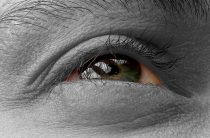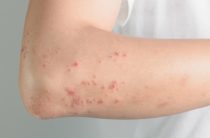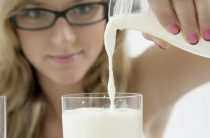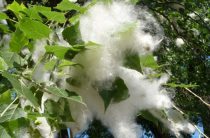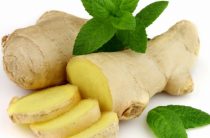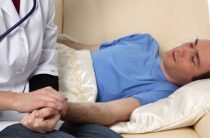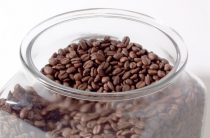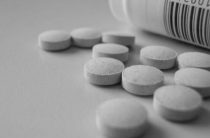It happens that a child is worried about a constant runny nose for some unknown reason, which conventional therapy does not help to cure. This symptom suggests that the baby has an allergic disease. Very often, the doctor diagnoses an allergy to flowering, the symptoms of which, among other things, are manifested by rarefaction of the mucous membrane and a runny nose.
An allergy is a distorted defensive reaction of the body. The allergen is the substance that the immune system, for unknown reasons, simply begins to perceive as a poison, while the defense mechanisms react, manifesting as a runny nose and cough, sneezing, watery eyes, often itching and skin rashes. At the same time, signs of the disease can be masked behind other ailments, often going unnoticed.
Allergy: causal relationships
It is difficult to say why the body begins to react to allergens in this way, but it can be argued that there are a number of predisposing factors:
- Heredity: most often, an allergic disease is transmitted through the maternal line.
It is even more likely to get an allergy from both parents (if they are allergic, then with a probability of 80% the child will receive an allergy as a gift). - Allergies very often begin to manifest themselves in those people who have weakened immunity since childhood due to frequent illnesses. Infectious diseases, as well as diseases of internal organs, can cause the strongest blow to the immune system.
- The sterility of living conditions should not be excessive, otherwise, when a child enters the natural environment, his body, even with conditions that are normal for most, an allergy may develop. By the way, based on statistics for the same reason, there are much more allergy sufferers among people of the so-called high social level.
- Ecology, unfortunately, in the modern world leaves much to be desired. Together with the air, from the very first breath, a huge amount of harmful substances enters our lungs. This problem is especially relevant in large and/or industrial cities.
- Products containing hormones, active additives, antibiotics aggressively tune our body.
- Household appliances, computers and even mobile devices emit radiation, which is an environment conducive to the harmful effects of allergens.
When everything blooms: allergies in babies
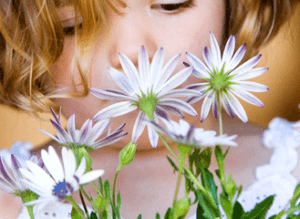 Unfortunately, it often takes a lot of time to recognize pollinosis (namely, this is how doctors call allergies in adults and their children to flowering). The thing is that the symptoms of this disease are very reminiscent of a cold. This leads to the fact that parents give their children antiviral or immunostimulating drugs. Of course, such treatment should not bring harm to the child, but there is no relief from it either.
Unfortunately, it often takes a lot of time to recognize pollinosis (namely, this is how doctors call allergies in adults and their children to flowering). The thing is that the symptoms of this disease are very reminiscent of a cold. This leads to the fact that parents give their children antiviral or immunostimulating drugs. Of course, such treatment should not bring harm to the child, but there is no relief from it either.
That is why you need to understand that a runny nose is not always so harmless, and go for a consultation first with a pediatrician, and then with a pediatric allergist. Self-treatment of such ailments leads to disastrous consequences. Especially dangerous are swelling of the mucous membranes, when the child can suffocate at all.
How not to confuse with ARI?
Not all signs of acute respiratory diseases are characteristic of allergies. So, with hay fever, babies will NOT have symptoms such as:
- red throat
- Enlarged lymph nodes
- Temperature increase
- Weakness
- Body aches
- Nausea.
But such a symptom as headaches of a periodic nature can accompany an allergy, although this seems unnatural to many.
Establishing diagnosis
Even if you are sure that the baby is allergic to flowering or another allergen (and, believe me, there are a great many of them), then it is still worth going to the doctor. To confirm the diagnosis of spring allergies, the specialist will prescribe two blood tests - a detailed and an immunological one. Only after that the doctor will decide on the optimal course of treatment.
You should never self-administer medicine to a baby. Parents who resort to such actions run the risk of seriously exacerbating the situation. By the way, even doctors do not always prescribe medication for the baby. In the first case of an allergic attack, an antihistamine may be sufficient.
How to behave to parents of an allergic person?
If a child has been diagnosed with pollinosis at least once in his life, then the mother needs to be vigilant, and in addition, follow simple tips, which will be preventive measures:
- If it is hot windy weather outside, then it is better not to go outside with the baby (at this time there is a very high concentration of pollen in the air, which can provoke relapses of the disease).
- Very often, for an allergic child, the causes of another exacerbation of the disease become nothing more than dry air. To correct this problem, it is advisable to use a humidifier.
- On the windows you need to install a fine mesh (at the same time, it must be wiped regularly).
- Eyes should be washed regularly.
- The nose of a child prone to allergies needs constant cleaning with saline solutions.
Treatment Method
If a child suffers from an allergy specifically to flowering, then the allergist will most likely prescribe one of three methods of treatment:
- Taking anti-allergic (belonging to different types) drugs
- Use of drugs that help relieve symptoms (eg, rhinitis and edema): these are most often used before the main treatment regimen is started
- Aromatherapy is prescribed to prepare the child's body for the dangerous flowering period.
Whatever method is chosen for treatment, only an experienced pediatric allergist can prescribe it. Most likely, the baby will be shown complex therapy.
When does this allergy appear?
Pollinosis traditionally comes to patients at certain periods:
- April - May (during this period, the spring flowering of most trees occurs)
- June - July (when meadow grasses are actively blooming)
- August - September (weeds begin to bloom, including the strongest allergen - annoying ragweed).
If a child has a seasonal allergy to a particular plant (for example, poplar fluff, the color of the same ragweed), then it is better to take the baby to a place where the allergen cannot act on him for such an unfavorable period.
How to eat during an exacerbation of allergic diseases?
As for an adult, nutrition means a lot to a baby, especially during seasonal allergic exacerbations. It is very important to follow some simple rules:
- It is necessary to feed at this time the baby exclusively with food that you have prepared yourself. It should be as easy to digest as possible (during this period, cancel muesli, which, despite its benefits, is very difficult to digest).
- The child should not eat fried or fatty foods. Find an alternative way to diversify his menu, use an unusual serving, think over the presentation, and so on.
- Cook porridge for your child more often.
- Do not use dairy products for long-term storage (choose those whose shelf life does not exceed 7 days).
- Exclude muffins and other bakery products for the period of treatment due to the presence of many components harmful to health (for example, baking powder).
- It is better to completely exclude tomatoes from the diet (at the same time, greenhouse tomatoes should not be given to babies at all, choosing fruits that have ripened naturally).
Different allergens - different food
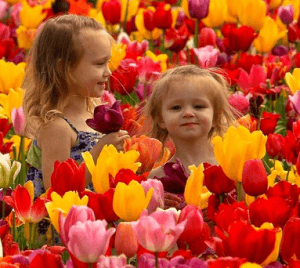 Depending on the various allergens, there are individual recommendations regarding the nutrition system:
Depending on the various allergens, there are individual recommendations regarding the nutrition system:
- If the allergen is alder and birch pollen, then it is better for the baby not to offer stone fruits (cherries, plums, olives, peaches, pears) and some spices (anise, curry and cumin). You should not use birch sap, try not to use birch buds and leaves in treatment.
- When a reaction to grass pollen is noted, it is time to exclude cereals, pasta, corn, bread and derivatives, nuts (peanuts are considered the most common allergen), beans and soybeans, strawberries, citrus fruits and even sorrel. Do not give kvass as a drink.
- When a baby is sensitive to hazel pollen, nuts are a dangerous food.
- If the pollen of wormwood and / or ragweed makes the baby feel allergic symptoms, then he does not need seeds, mayonnaise, halva, chicory, mustard, watermelons and melons. Do not get involved in this period of phytotherapy. Wormwood, elecampane, coltsfoot, calendula, chamomile, succession, tansy, dandelion, yarrow are especially harmful. Spices should also be used with caution, avoiding celery, parsley, cumin, dill, curry and pepper, nutmeg, ginger, coriander , cinnamon.
- When pollen from flowering trees is a concern, even some vegetables (carrots, paprika, new potatoes and celery) are dangerous. The fact is that the structure of these vegetables is similar to the structure of pollen from trees.
- An allergy to quinoa pollen suggests that spinach and beets should be limited in the diet.
- With all types of pollinosis, it is better to refrain from honey during exacerbations.
Interestingly, outside of periods of exacerbations, the above products must be consumed: they will help increase the child's resistance to a particular allergen.
Do you have doubts or questions? Our competent specialist will be happy to advise you. Ask a question without leaving the page!
We advise you to read:
